- HCPL Capstone Workshop
- The Conviction Workshop
- Encounters: The Conference
- Educating for Intellectual Humility: Countering Arrogance and Servility
- Political Polarization and Epistemic Arrogance
- Religious Conviction and Intellectual Humility in Public Life
- Interdisciplinary Workshop: Intellectual Humility and Public Deliberation
- Voicing Dissent: The Ethics and Epistemology of Making Disagreements Public
- Tudor Ireland and Renaissance Court Society: Audience and Discourse
- Dialogue on Campus Dialogues
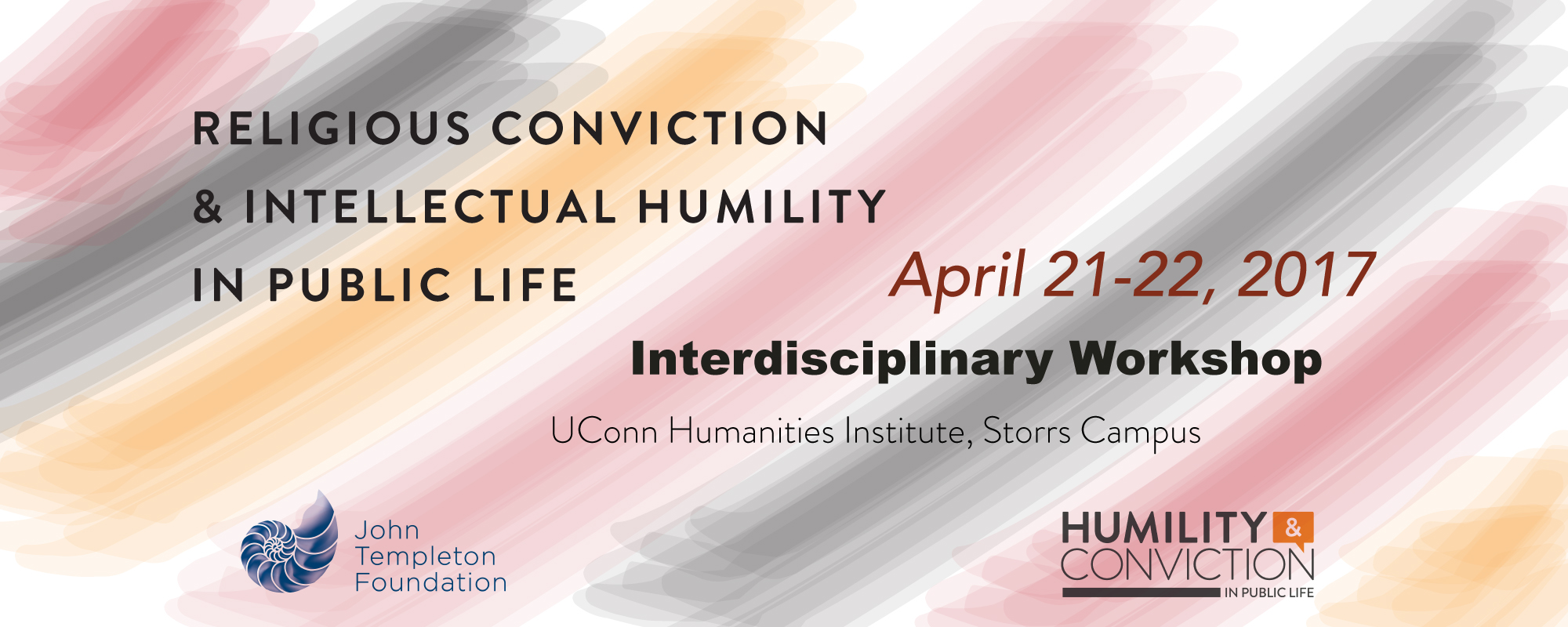
Religious Conviction and Intellectual Humility in Public Life
Date: April 21-22, 2017
Location: UConn Humanities Institute, Storrs Campus
Keynote address: 4:00-5:30pm, April 21st (reception to follow)
For directions to UConn, the South Parking garage, and the Humanities Institute, please click here.
Strong religious convictions drive many individuals to become engaged in debates about issues of public concern and controversy. Yet scholars argue that effective public discourse rests on participants’ capacity and willingness to be intellectually humble in their interactions with people with whom they disagree. The presumption that it is difficult for individuals to act with conviction and humility simultaneously, particularly when convictions are religious in nature, has led to widespread concern about the role of religion in public life. Yet it is unclear whether religious conviction and humility are actually at odds with one another, and if they are, how the relationship between them varies across different groups and contexts.
This interdisciplinary conference brings together scholars studying a wide range of religious actors who are engaged in public life in order to consider this complex relationship between religious conviction, intellectual humility and constructive public discourse. Drawing on empirical research as well as political and social theory, philosophy, and theology; and understanding that religion takes many forms and is “lived” in myriad ways, speakers will explore variation in how these dynamics play out across different groups of religious actors, public settings and political issue areas. Participants will then collectively consider how a more nuanced understanding of how this works could be used to inform ongoing theoretical discussions about the roles of religious conviction and intellectual humility in public life, and ongoing practical discussions about how citizens can more effectively engage with one another across religious and political differences.
Workshop Organizer and Host
Ruth Braunstein, University of Connecticut
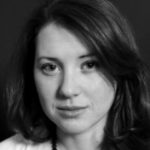 Ruth Braunstein is assistant professor in the Department of Sociology at the University of Connecticut. Her research explores the diverse ways in which ordinary citizens across the political spectrum participate in American public life, and the complex roles of religion and culture in these efforts. Her research has been published in the American Sociological Review, Contexts, the Journal for the Scientific Study of Religion and Qualitative Sociology, among other outlets. She is the author of Prophets and Patriots: Faith in Democracy Across the Political Divide, based on a comparative ethnographic study of progressive faith-based community organizing and Tea Party activism; and co-editor of the forthcoming volume, Religion and Progressive Activism: New Stories about Faith and Politics. Ruth is a Faculty Fellow at the Center for Cultural Sociology at Yale University, and during 2014-2015, she was an American Fellow of AAUW. She is also a member of the Editorial Boards of Sociology of Religion and The Immanent Frame, a digital forum on secularism, religion and the public sphere published by the Social Science Research Council. She holds a Ph.D. in sociology from New York University and a B.S. in Foreign Service from Georgetown University, where she studied international culture and politics. She is a core faculty member of the UConn Humanities Institute’s Humility and Conviction in Public Life Project, and during 2015-2016, was one of UCHI’s Public Discourse Project Faculty Fellows.
Ruth Braunstein is assistant professor in the Department of Sociology at the University of Connecticut. Her research explores the diverse ways in which ordinary citizens across the political spectrum participate in American public life, and the complex roles of religion and culture in these efforts. Her research has been published in the American Sociological Review, Contexts, the Journal for the Scientific Study of Religion and Qualitative Sociology, among other outlets. She is the author of Prophets and Patriots: Faith in Democracy Across the Political Divide, based on a comparative ethnographic study of progressive faith-based community organizing and Tea Party activism; and co-editor of the forthcoming volume, Religion and Progressive Activism: New Stories about Faith and Politics. Ruth is a Faculty Fellow at the Center for Cultural Sociology at Yale University, and during 2014-2015, she was an American Fellow of AAUW. She is also a member of the Editorial Boards of Sociology of Religion and The Immanent Frame, a digital forum on secularism, religion and the public sphere published by the Social Science Research Council. She holds a Ph.D. in sociology from New York University and a B.S. in Foreign Service from Georgetown University, where she studied international culture and politics. She is a core faculty member of the UConn Humanities Institute’s Humility and Conviction in Public Life Project, and during 2015-2016, was one of UCHI’s Public Discourse Project Faculty Fellows.
Michael Patrick Lynch, University of Connecticut
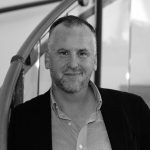
Michael Patrick Lynch is a writer and professor of philosophy at the University of Connecticut, where he directs the Humanities Institute. His work concerns truth, democracy, public discourse and the ethics of technology. Lynch is the author or editor of seven books, including, The Internet of Us: Knowing More and Understanding Less in the Age of Big Data, In Praise of Reason: Why Rationality Matters for Democracy, Truth as One and Many and the New York Times Sunday Book Review Editor’s pick, True to Life. The recipient of the Medal for Research Excellence from the University of Connecticut’s College of Liberal Arts and Sciences, he is The Principal Investigator for Humility & Conviction in Public Life, a $7 million project aimed at understanding and encouraging meaningful public discourse funded by the John Templeton Foundation and the University of Connecticut. A frequent contributor to the New York Times “The Stone” weblog, Lynch’s work has been profiled in The New Yorker, The Washington Post and Wired (among others). He speaks regularly to both academic and non-academic audiences, and has appeared at such venues at TED@250, Chautauqua, and South by Southwest.
Information about the Keynote address, speakers, and their talks below.
Keynote Address
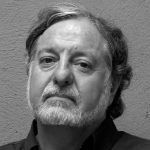 José Casanova, Georgetown University
José Casanova, Georgetown University
Keynote address: 4:00-5:30pm, April 21st (reception to follow)
Religious Conviction and Intellectual Humility in Public Life: Socio-Theological Reflections
What does it mean to have a religious conviction in our global secular age? Why is it necessary that when we enter public life, even if motivated by deeply held religious convictions, our public interventions ought to be informed by intellectual humility? In addressing these questions I will proceed with the assumption that our age is characterized by profound religious, cultural and moral pluralism, that requires that we encounter the other with deep intellectual humility and respect. Precisely because not truths or convictions but persons have rights, each person has the inalienable right to seek the truth and to hold his/her convictions publicly. I will ground my reflections on the historical experiences of the Jesuits as pioneer globalizers in the early modern age, and on the deeds and words of the Jesuit Pope Francis. The Jesuits combined a deep religious conviction as global missionaries with a peculiar openness, controversial at their time, to accommodate other cultures and to enter into deep intercultural encounters, what Pope Francis calls the “culture of the encounter.”
José Casanova is Professor of Sociology, Theology and Senior Fellow at the Berkley Center for Religion, Peace, and World Affairs at Georgetown University, where he heads the Program on Religion, Globalization, and the Secular. He is also a Professorial Fellow at Australian Catholic University, in Melbourne, where he directs a project on Asian/Pacific Catholicism and Globalization. Previously he served as Professor of Sociology at the New School for Social Research in New York and has held visiting appointments at numerous American and European universities. He has published widely in the areas of sociological theory, religion and politics, transnational migration, and globalization. His best-known work, Public Religions in the Modern World (Chicago, 1994) has become a modern classic in the field and has been translated into various languages, including Japanese, Arabic, and Turkish, and is forthcoming in Indonesian, Farsi, and Chinese. Presently he holds the Kluge Chair for Societies and Cultures of the Northern Hemisphere at the Library of Congress, where he is writing a book on “The Jesuits and Globalization.” He is also the recipient of the 2012 Salzburger Hochschulwochen Theological Prize.
To view the full schedule, click here.
For directions to UConn, the South Parking garage, and the Humanities Institute, please click here.
Paper Titles and Abstracts
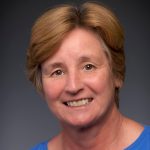 Michele Dillon, University of New Hampshire
Michele Dillon, University of New Hampshire
Humility Regained: Public Catholicism with Francis
The Catholic Church has long been a publicly engaged actor who has authoritatively articulated its convictions with respect to economic justice and issues of sexual morality. Recent years, however, have seen notable shifts in the church’s engagement with secular society. There has been a recalibration in the Vatican’s public priorities and an embrace of greater intellectual humility. Among other factors, the church’s sex abuse scandal prompted the emergence, under Benedict, of a more contrite church willing to engage in self-critique. Francis’s papacy amplifies this turn. In particular, the communicative openness Francis brings to controversial church and societal debates affirms diversity of opinion and lived experience, and the importance of honest dialogue with difference. Evidence of such openness is found in Francis’s discourse on economic inequality, climate change, gay rights, and divorce. The deft execution of this more humble communicative approach may expand public attentiveness to Francis’s convictions. It also yields a highly mixed reception from diverse religious and secular actors alike. This takes different forms depending on the question at issue. In some instances, his intervention serves an emancipatory function. In others, however, it is either resisted or distorted in ways that subvert its intended goals and advance the partisan convictions of both the right and the left. My analysis suggests that intellectual humility and communicative openness are in tune with post-secular expectations of mutual respect for religious and secular convictions. In practice, however, these characteristics are more successful persuasive strategies in some institutional and cultural contexts than others.
Michele Dillon is professor of sociology at the University of New Hampshire and Senior Advisor for Research at its Carsey School of Public Policy. Her research interests include autonomy and authority in the Catholic Church; post-secular society; religion, spirituality and cultural change; and purposeful aging. She is currently writing a book on Post-Secular Catholicism (to be published by Oxford University Press). Other publications include American Catholics in Transition (co-authors W. D’Antonio & M. Gautier; Rowman & Littlefield, 2013), In the Course of a Lifetime: Tracing Religious Belief, Practice and Change (co-author Paul Wink; University of California Press, 2007; selected by Choice as an outstanding academic book), Catholic Identity: Balancing Reason, Faith, and Power (Cambridge University Press, 1999), Debating Divorce: Moral Conflict in Ireland (University Press of Kentucky, 1993), Handbook of the Sociology of Religion (editor, Cambridge University Press, 2003), Introduction to Sociological Theory (Wiley-Blackwell, 2nd ed., 2014), and over 50 book chapters and articles in journals including Sociological Theory, Journal for the Scientific Study of Religion, Sociology of Religion, Public Opinion Quarterly, Journal of Adult Development, Psychology and Aging, and Research on Aging. Dr. Dillon served as President of the Society for the Scientific Study of Religion, Chair of the American Sociological Association Section for the Sociology of Religion, President of the Association for the Sociology of Religion, and Executive Secretary of the Eastern Sociological Society. Her research has been funded by the Templeton Foundation, the Louisville Institute, the Fetzer Institute, the Kellogg Foundation, and the New Hampshire Charitable Foundation.
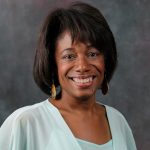 Korie L. Edwards, The Ohio State University
Korie L. Edwards, The Ohio State University
Fortifying Communities: How Religious Leaders of Racially and Ethnically Diverse Congregations Work to Build Places of Inclusion
We have seen growth in the proportion of racially and ethnically diverse congregations in the United States since the turn of the century. Still, diverse congregations continue to be a relative rarity in the U.S. In 2010, only about 14% of all congregations could be considered diverse. Moreover, research reveals that these social spaces face rather unique challenges in their aims to develop a sense of connectedness and community. Drawing upon the Religious Leadership and Diversity Project (RLDP), a national, multi-method study of head clergy of racially and ethnically diverse churches, this paper will discuss how these leaders draw upon their theology, ideology and experiences to create social spaces that are welcoming and inclusive. Their stories provide lessons for us as we move toward understanding how to promote and enact a practice of intellectual humility and inclusivity.
Dr. Korie L. Edwards is Associate Professor of Sociology at The Ohio State University. She is a leading scholar of race and religion in the United States, with a particular focus on religion and racial and ethnic diversity. Dr. Edwards has written several books and articles on multiracial religious organizations. These include The Elusive Dream: The Power of Race in Interracial Churches (author, Oxford University Press); Against All Odds: The Struggle for Racial Integration in Religious Organizations (co-author, New York University Press); and "Much Ado About Nothing: Rethinking the Efficacy of Multiracial Churches for Racial Reconciliation," which appears in the edited volume Christians and the Color Line: Race and Religion after Divided by Faith (author, Oxford University Press). Her recent scholarly agenda focuses on matters related to race and religious leadership. She is developing a book on contemporary African American religious leaders and their engagement in civic and political activity. And she is currently conducting a national multi-method study of multiracial church pastors called The Religious Leadership and Diversity Project (see the website, rldp.net, for more).
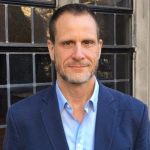 Philip Gorski, Yale University
Philip Gorski, Yale University
Restoring the Fact/Value Tension: Thoughts on a Post-Positivist Ethos for the Social Sciences
Max Weber argued that the social sciences should be “value-free.” His logical positivist interpreters erected a wall of separation between “facts” and “values.” More than a half century later, aspiring social scientists are still inculcated with an ethos of “objectivity” premised on the “fact/value distinction.” This despite the complete collapse of positivist philosophy and its sacred dichotomy over a half century ago. Some social scientists have responded with an ethos of communal advocacy: since values cannot be separated from facts, they argue that scholars should use their research as a vehicle for their extra-disciplinary political commitments. In doing so, however, they tacitly presume that values cannot be altered by facts, and in so doing, reinscribe a new version of the fact/value distinction. I contest this claim, arguing that facts and values are “ontically” interdependent and that the first step in rethinking the proper ethos for the social sciences is to establish a fact/value tension.
Philip Gorski is Professor of Sociology and Religious Studies at Yale University, where he leads the MacMillan Initiative on Religion, Politics and Society and directs a Templeton funded project on Critical Realism and the Social Sciences. His most recent book is American Covenant: A History of Civil Religion from the Puritans to the Present (Princeton, 2017).
 Jeffrey Guhin, University of California, Los Angeles
Jeffrey Guhin, University of California, Los Angeles
The Problem with “Just a Theory”: Creationism, Climate Change, and the Relation between Certainty and Action
Intellectual humility is usually seen as a necessary first step towards solving a growing problem in American civic cultures: an undying certainty that we have nothing to learn from those who are different from us. This idea that we might well be wrong and must be willing to learn from each other and to see our ideas corrected is a central pragmatist insight and also, according to many, the reason for the resounding success of the scientific method. Yet such humility and willingness to be proven wrong can also be used by interlocutors as evidence that serious decisions can wait until things are more certain. These tensions raise important questions about the differences between absolute certainty, sufficient certainty, and intellectual humility. However, more important than these question for this talk is a related one: to what extent does absolute certainty require action? By comparing secular liberal action on climate change versus secular liberal action on creationism, I hope to show how and why certainty and humility need to be understood in relation to broader cultural structures and relative needs when determining why and how we should compel others to change or go against their beliefs.
Jeffrey Guhin is an assistant professor of Sociology at UCLA. His first book, under contract with Oxford, is an ethnographic comparison of two Sunni Muslim and two Evangelical Christian high schools. His second book, for which he has completed fieldwork, will be a study of moral cultures in six public high schools, two each in San Diego, Charlotte, and New York City. He has written for Slate, America, Commonweal, and the Los Angeles Review of Books.
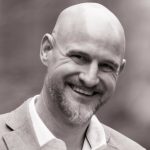 John Hartley, Yale University
John Hartley, Yale University
Bounded Intellectual Humility in Evangelical Struggles over Relations with Muslims and Islam
At least three dimensions of the relationship between religious conviction and intellectual humility emerge in this case study. One involves evangelical orientations toward Islam as an alternative and competing religious framework. Others involve struggles between the evangelical “priesthood” and informal alliances of prophetic evangelical “clans.” Here, conviction and humility interact in contests over forms of dogmatic and ethnographic capital. I use survey data to identify self-understood notions of conviction and limits on humility and mixed-method field analysis to illuminate practices that support and confound these self-understandings. The study suggests that objective and subjective conditions of struggle in the evangelical field supply referential limits to the practice of intellectual humility. Embodied bounds on evangelical leaders’ ownership of intellectual limitation tend to reflect the bases of their moral and intellectual authority. This connects objective social situations—of which one might be relatively blind—to subjective conditions that are felt but not necessarily engaged rationally. The result is a form of bounded intellectual humility that is likely not particular to evangelicals or religious leaders.
John Hartley convenes the initiative on Religion, Politics and Society at Yale and is a fellow of the Yale Center for Faith & Culture. He is a relational and comparative sociologist whose research focuses on the interaction between religious beliefs and socio-political struggle. His empirical work examines topics such as diplomacy, policy advocacy, conflict resolution, culture change, revolutions and transnational social movements with particular emphasis on Iran and Muslim-Christian relations. John also runs Pathways for Mutual Respect, a non-profit that aims to transform relationships among Muslims, Christians, and their socio-political contexts by empowering bold leadership for the common good. He started Pathways in 2006 at the exhortation of his Iranian neighbors in Isfahan. John holds a BA in International Relations from UC Davis (honors and special recognition), an MA in Iranian History (distinction) from the University of Isfahan and MA, MPhil and PhD degrees from Yale.
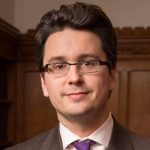 Andrew March, Yale University
Andrew March, Yale University
Explaining Disbelief: The Question of Radical Religious Pluralism in Islamic Thought
Both Rawls and Habermas (in different ways) ground the moral obligation to limit arguments in favor of coercive legislation to what can reasonably be endorsed by all persons living in modern conditions of pluralism on a distinctively epistemological-cum-psychological account of what it means to live in such conditions. It is our own explanation for pluralism which grounds secular respect for religious ethical views and in turn leads to a reciprocal demand that the religious have some explanation for the ethical perspectives of unbelievers which mitigates the natural inclination to seek to vindicate one’s own conception of Truth. In this paper I use the examples of Rawls and Habermas as inspiration for pursuing a set of questions within Islamic theology and political ethics. More precisely, I want to pose the question of toleration within Islamic political ethics, on which a substantial literature exists, more obliquely than is usual: How does the epistemic and moral-psychological vantage point of the “radical other” – the unbeliever, and not merely the wayward Abrahamic cousin – figure in Islamic discourses on toleration and coercion, if at all? Can there be reasonable pluralism based on an understanding of why various people fail to become Muslim?
Andrew March is Associate Professor of Political Science at Yale University. His research and teaching interests are in the areas of political theory; contemporary philosophical liberalism; Islamic political thought; Islamic law; religion and political theory; and comparative political theory. He is a graduate of the University of Pennsylvania and the University of Oxford. His book, Islam and Liberal Citizenship (Oxford University Press, 2009), is an exploration of Islamic juridical discourse on the rights, loyalties and obligations of Muslim minorities in liberal polities. It won the 2009 Award for Excellence in the Study of Religion from the American Academy of Religion (Constructive-Reflective Studies Category). He has published articles on religion, liberalism and Islamic law in, amongst others, American Political Science Review, Philosophy & Public Affairs, Journal of Political Philosophy, Cardozo Law Review, and Islamic Law an Society. He is presently working on a book on the problem of sovereignty in modern Islamic thought, tentatively entitled The Caliphate of Man.
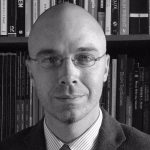 Wes Markofski, Carleton College
Wes Markofski, Carleton College
American Evangelicalism, Social Reflexivity, and Intellectual Humility in Public Life
This paper examines new evangelical practices of social reflexivity—defined here as people’s capacity to think and interact flexibly and self-critically in relation to diverse social others and situations—as an example of pluralist, domain-specific intellectual humility across categories of social difference. Drawing on twelve months of ethnographic fieldwork with faith-based community organizing, community development, progressive advocacy, and service-volunteer groups in Portland, Los Angeles, Atlanta, and Boston, I discuss four distinct types of social reflexivity practiced by evangelical actors across race, class, religious, and moral-cultural difference. Individuals and groups practice segmented reflexivity when they think and interact flexibly and self-critically with respect to one type of social difference but not others. By contrast, people practice transposable reflexivity when they think and interact flexibly and self-critically across multiple types of social difference. Individuals and groups practice dogmatic reflexivity when they engage in self-critical, but partial and inflexible, modes of talk and social reflection. By contrast, people practice deep reflexivity when they demonstrate iterative capacity for flexible and self-critical thought and action whilst acknowledging the tentative and fallible nature of their efforts to engage across difference. I argue that the practice of social reflexivity is a significant example of religious actors’ capacity to practice intellectual humility in public life without abandoning deeply-held particularist religious convictions, while also pointing to the partial, domain-specific, structurally and culturally conditioned nature of intellectual humility qua social reflexivity. I conclude by considering endogenous evangelical cultural resources for the practice of intellectual humility in public life.
Wes Markofski (Ph.D. Sociology, University of Wisconsin-Madison) is an Assistant Professor of Sociology at Carleton College in Northfield, MN. An ethnographer and social theorist, his research centers on the study of politics, culture, and public religion. In its substantive focus on new monastic and progressive styles of American evangelicalism, his research explores the dynamic interplay of race, religion, and intersectional inequality in urban contexts and American democracy writ large. His recently published work on American evangelical political and public engagement can be found in Religion & American Culture, Sociology of Religion, and the book New Monasticism and the Transformation of American Evangelicalism, published in 2015 by Oxford University Press. New Monasticism and the Transformation of American Evangelicalism utilizes textual analysis, historical research, and five years of ethnographic fieldwork on the new monasticism—an urban communitarian religious movement involving young progressive evangelicals and others—to analyze recent political and religious transformations in the field of American evangelicalism through a Bourdieusian lens. By systematically examining how distinctive conservative and progressive movements within American evangelicalism are influenced by and constructed in relation to one another, this book develops an original theoretical framework for understanding internal contestation, stability, and change within the American evangelical field. His most recent work includes an invited contribution to a Religion & American Culture FORUM on the topic, “Studying Religion in the Age of Trump.” At Carleton, he teaches courses in social theory, sociology of religion, diversity and democracy, and introductory sociology.
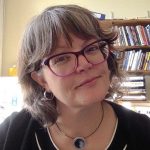 Dawne Moon, Marquette University
Dawne Moon, Marquette University
Relationship, Humility, Justice (with Theresa Tobin, Marquette University)
Drawing from a qualitative study of the conservative Christian movement to affirm LGBT identities and/or reconcile with LGBT people, we argue that any definition of humility is incomplete if it does not recognize the motivation to foster and preserve relationship. Coming from situations where being shamed by others—treated as if their relationship is expendable—is experienced as spiritual violence, participants in this movement reveal that humility, rooted in the capacity to preserve relationship, requires concern for social justice. The work needed to challenge views that are hostile to LGBT people often cannot remain distinct from the work to end oppression for everyone, including oppressed racial groups. However, maintaining a place for LGBT conservatives and their families is also crucial healing work, and that space feels less welcoming to some when it threatens to turn “conservatives” into “liberals.” How do the largely white participants in this movement navigate their appreciation for humility alongside their understanding of Christian love and mission as including—or not including—work for social justice?
Dawne Moon (PhD 2000, University of Chicago) is an Associate Professor of Sociology and Women’s and Gender Studies at Marquette University. A qualitative researcher, she studies how social power works through culture and emotions, particularly as related to collective identity, reconciliation, and conceptualizations of social justice. Specifically, she has examined discussions of homosexuality, LGBT identities, same-sex marriage, and gender transition among US Protestants, and conflicting views among American Jews over Middle East politics. She is currently conducting a study with philosopher Theresa Tobin on the largely North American conservative Protestant movement to reconcile with LGBT people and/or to affirm LGBT identities, same-sex marriage, and gender transitions. This study focuses on three major themes: shame as a form of spiritual violence, gender in the conventional conservative Christian worldview, and solidarity in the pursuit of social justice.
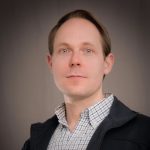 Anthony Petro, Boston University
Anthony Petro, Boston University
From Pluralism to Absolutism in Public Catholicism: The U.S. Catholic Bishops, LGBT Rights, and the Politics of “Religious Freedom”
In the last few years, Catholic leaders (and conservative evangelicals) have supported and advanced “religious freedom” arguments to stem recent political gains made by LGBT activists. This paper situates these current debates within a broader historical framework to understand how the emergence of what José Casanova calls “public Catholicism” has shaped religious engagement in the public sphere. I start with debates about contraception and gay rights in the wake of the AIDS crisis in the 1980s to chart the shifting terrain of religious and political debate. Comparing the American bishops’ two major statements on the epidemic – “The Many Faces of AIDS” (1987) and “Called to Compassion and Responsibility” (1989) – illuminates a shift within the Church hierarchy toward more orthodox, even absolutist, positions regarding Catholic teaching about sexuality. The first statement allowed, under very specific cases, for teaching about contraception. The ensuing two years witnessed waves of debate among Catholic bishops that culminated in a second statement that roundly condemned any teaching that allowed for the use of contraception. This disagreement reveals important shifts in Catholic thinking in regard to political engagement, gender and sexuality, and public health. Indeed, these statements expose two important tensions: the first regards the proper role of the Catholic Church as an authority on sexuality and the second concerns questions about how the Church should engage in public life—as a source of absolutist authority or as one among many sites of conversation in a pluralistic public sphere.
Anthony Petro (Ph.D., Religion, Princeton University) serves as assistant professor in the Department of Religion and in the Program in Women’s, Gender & Sexuality Studies at Boston University. His research and teaching focus on the history of religion in the modern U.S.; religion, gender, and sexuality; and religion and medicine. His book After the Wrath of God: AIDS, Sexuality, and American Religion was published by Oxford University Press in 2015. Petro is currently working on two projects. The first tracks the history of Christian engagement with public health and disability policy in the U.S. since the 1950s. The second, called “The Queer Arts of American Religion,” examines the prevalence of religious imagery in feminist and queer art and performance since the 1960s. He has published essays on histories of Catholic sexual abuse, critical disability studies and religion, and approaches to studying race, gender, and sexuality in North American religion. Petro also co-chairs, with Lynne Gerber, a five-year seminar for the American Academy of Religion on “Global Perspectives on Religion and HIV/AIDS.”
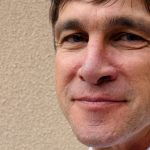 Richard L. Wood, University of New Mexico
Richard L. Wood, University of New Mexico
Passion and Virtue in Public Life, or A Sociological View of the Political Holiness the World Needs
This paper draws on the work of Roberto Mangabeira Unger to argue for a view of public life in which the passions—including religious passion—play a central role. Yet such an account of public life quickly raises concerns about polarization, which have historically been resolved in democracies via structural checks and balances. But contemporary technological and media transformations have dissolved those solutions, to which current American politics provide ample witness. The paper draws on the work of Donald Gelpi SJ, Karol Wojtyla, and Jorge Bergolio to further argue that only a politics of virtue rooted in solidarity and humility can answer the resulting crisis. The paper then draws on the work of Robert N. Bellah to argue that, in the American context at least, such a politics of virtue must be grounded in institutions and in social movements that hold those institutions accountable—illustrating the last point with examples from Latin America and the United States.
Richard L. Wood serves as Professor of Sociology at the University of New Mexico. His research and writing focuses on the cultural and institutional bases of democratic life, especially those linked to religion. Wood teaches undergraduate and graduate courses in the sociology of religion, social theory, community organizing, and ethnographic research methods. His most recent book is A Shared Future: Faith-Based Organizing for Racial Equity and Ethical Democracy (University of Chicago, 2015; co-authored with Brad Fulton; named best book of 2016 by ARNOVA, the Association for Research on Nonprofit Organizations and Voluntary Action) and Faith in Action (University of Chicago, named best book of 2002 by the American Sociological Association’s religion section. Wood also serves as a pro-bono advisor to the Catholic Campaign for Human Development, the major anti-poverty and community organizing arm of the United States Conference of Catholic Bishops; and on the national board of the PICO National Network.
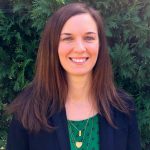 Grace Yukich, Quinnipiac University
Grace Yukich, Quinnipiac University
Peaceful Warriors: Social Status and Humility in American Buddhist Activism
Religious activists play an important role in shaping American public life. Congregations provide resources that help activists mobilize, but religion also offers transcendent motivation: if divine law demands a different social order, religious followers must act. This understanding of religious activism is based almost entirely on studies of Christian and Jewish activists, despite the growing presence of other religious groups in the U.S. Congregations and belief systems—typically understood as the primary ways in which religion mobilizes activists—play less central roles in some of these traditions. Does religion still mobilize members of non-Judeo-Christian groups? If so, how might the social status of religious minorities shape how they engage in activism? Based on fieldwork and interviews with American Buddhists, I find that, like Christian and Jewish activists, Buddhist activists see their activism as connected to their religion. However, the Buddhist focus on practice creates an emphasis on what I call everyday activism rather than participation in more contentious activism, a practice that in many ways allows for and requires more humility than social movement activism. Buddhism’s position on the religious margins both makes Buddhists wary of contentious activism and gives them fewer institutional outlets for it. Still, higher status Buddhists were more likely to engage in contentious activism than lower status Buddhists, suggesting that social position matters for the type of activism in which religious people engage. Thus, some religious people may be more apt than others to engage in forms of activism that necessitate humility.
Grace Yukich is associate professor of Sociology at Quinnipiac University. Her research examines how immigration is changing the relationship between religion and public life in the United States. Her book, One Family Under God: Immigration Politics and Progressive Religion in America (Oxford University Press 2013), chronicles how religious activists are working both for immigration reform and for religious change in the U.S. Her research has also appeared in various journals, including Social Problems, Mobilization, and Journal for the Scientific Study of Religion. Currently, her research focuses on two main areas: 1) religion’s role in the public engagement of American Buddhists, Hindus, and Muslims, and 2) discrimination against Arab American Muslims in the labor and housing markets. In both of these projects, she is especially interested in how the social position of members of marginalized religious groups shapes their relationships with dominant societal groups, both at the individual and institutional levels. She is Founding Editor-in-chief of Mobilizing Ideas, a blog publishing conversations between social movement scholars and activists. From 2010-2011, she was Religion and Public Life Fellow at Princeton University’s Center for the Study of Religion. She also recently completed a term as a Young Scholar in American Religion at the Center for the Study of Religion and American Culture (2014-2016).